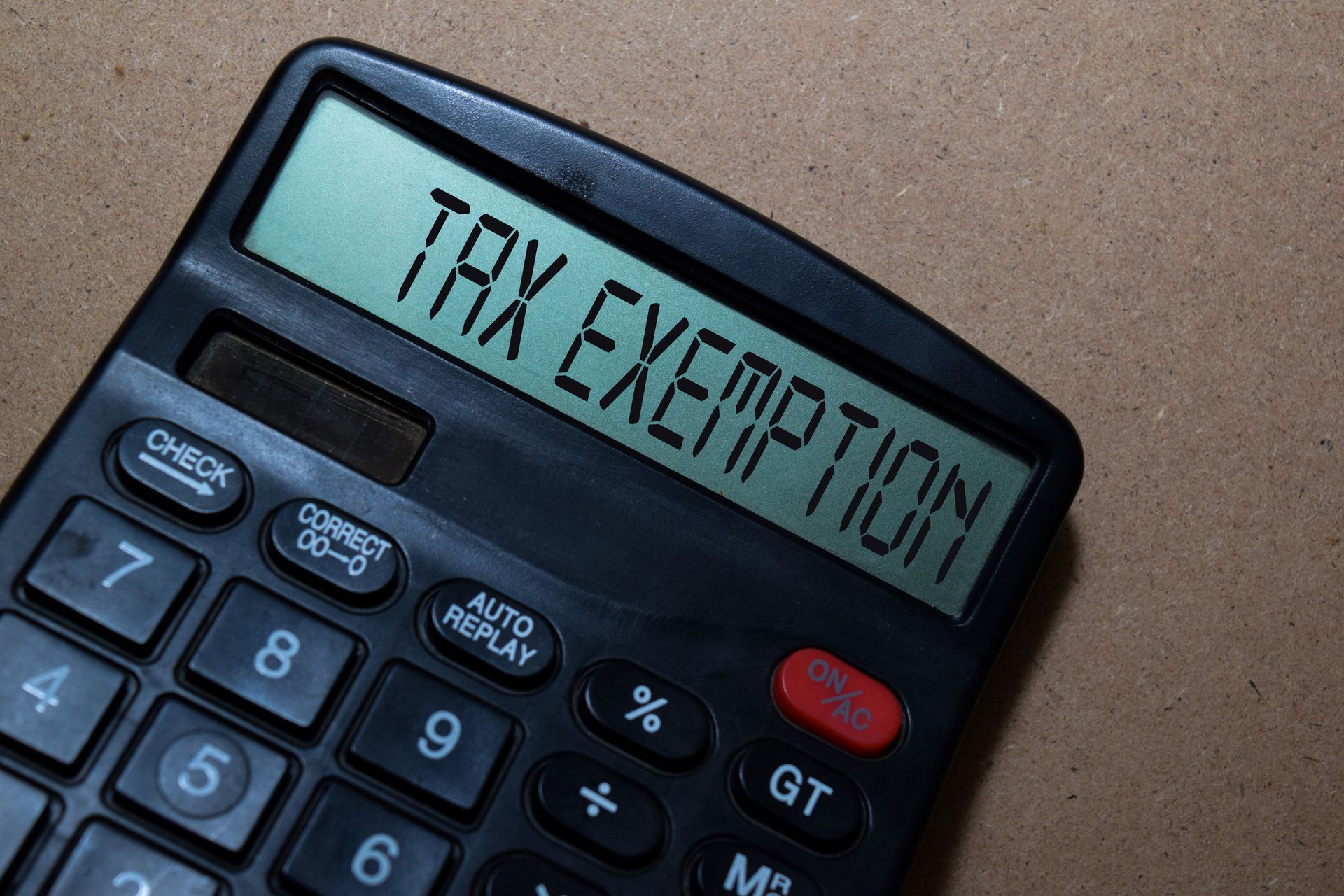How Can Claiming a Dependent Lower Your Taxes?
Navigating the world of taxes can often feel like venturing into a dense forest without a map. But what if there was a way to trim your tax bill legally and efficiently? Enter the strategy of claiming a dependent.
This often-overlooked aspect of filing taxes can significantly lower your tax obligations and put more money back into your pocket. In this blog post, we'll explore the ins and outs of claiming a dependent on your taxes and unveil how it can lead to substantial savings.
Understanding the Basics of Dependents
The concept of dependents is foundational when it comes to filing taxes. A dependent is typically someone who relies on you financially, such as a child or a relative. The IRS defines specific criteria to determine who qualifies as a dependent, and these criteria are essential to understand before you can claim them on your taxes.
Firstly, dependents are generally categorized into two groups: qualifying children and qualifying relatives. Each group has distinct requirements regarding age, residency, and financial support. Qualifying children must be under a certain age and live with you for more than half the year. On the other hand, qualifying relatives must meet income thresholds and receive financial support from you.
Accurately identifying your dependents is crucial, as it determines the range of tax benefits you may be entitled to. Incorrectly claiming someone as a dependent can lead to complications with the IRS, so it's essential to review your situation carefully and ensure you meet all necessary criteria.
The Child Tax Credit Explained
One of the most significant tax benefits available to those claiming a dependent is the Child Tax Credit (CTC). This credit is designed to help families offset the costs of raising children and can provide substantial savings on your tax bill. For each qualifying child under the age of 17, you may be eligible for a credit worth several thousand dollars.
The CTC is a refundable credit, meaning it can not only reduce your tax liability but also result in a refund if the credit exceeds the amount of taxes you owe. This aspect makes it particularly valuable for families seeking to maximize their tax savings. It’s important to note that the CTC has income limitations, so be sure to check the latest IRS guidelines to determine your eligibility.
For many families, the CTC can be a crucial component of their financial planning. Even if you do not owe any taxes, claiming the credit can result in a direct increase in your refund, providing additional financial support for your family’s needs.
Other Tax Credits for Dependents
Beyond the Child Tax Credit, there are several other credits available for taxpayers who claim dependents. One such credit is the Earned Income Tax Credit (EITC), which is aimed at low to moderate-income earners. This credit can be highly advantageous, as it is both refundable and designed to encourage work while reducing poverty levels.
The EITC's value varies depending on your income, filing status, and number of dependents. By including dependents in your tax return, you may qualify for a higher credit amount, thus maximizing your potential refund. Additionally, the Child and Dependent Care Credit can help cover the costs of childcare or care for a dependent while you work or look for work.
These credits are essential tools for improving your financial standing while ensuring your family's well-being. By understanding and utilizing these credits in conjunction with claiming dependents, you can enhance your overall tax strategy, ensuring you receive every benefit available to you.
How Exemptions and Deductions Work
When you claim a dependent on your taxes, you're not just limited to credits. Exemptions and deductions play a significant role in reducing your taxable income, resulting in lower overall tax liability. Although personal exemptions were suspended under recent tax reforms, the importance of deductions remains.
One such deduction is the Head of Household filing status, which offers a higher standard deduction compared to single filers. To qualify, you must have a qualifying dependent and provide more than half of the household’s financial support. This deduction can substantially reduce your taxable income and, consequently, your tax bill.
Additionally, the Medical Expense Deduction allows you to deduct qualifying medical expenses for yourself and your dependents that exceed a certain percentage of your adjusted gross income. These deductions, when combined with credits, form a comprehensive approach to reducing your overall tax burden.
Eligibility Criteria for Dependents
To harness the full potential of tax credits, exemptions, and deductions, understanding the eligibility criteria for dependents is vital. The IRS has established clear guidelines to determine who qualifies as a dependent, focusing on factors such as relationship, residency, age, and financial support.
Qualifying children must meet criteria concerning their age, relationship to you, and residency. They must also not provide more than half of their own financial support. For qualifying relatives, other specific income and support conditions apply, making it essential to assess each potential dependent's circumstances.
Understanding these criteria ensures compliance with tax laws and maximizes your chances of tapping into the available tax benefits. Keeping accurate records of your dependents' qualifications can prevent future issues with the IRS and streamline your tax-filing process.
Filing Taxes with Dependents
Filing taxes with dependents involves additional documentation and considerations. You will need to include specific information about each dependent, such as their name, Social Security number, and relationship to you. This information is crucial for verifying eligibility and calculating tax credits.
Employing tax software can simplify the process by guiding you through the necessary steps and providing calculations for potential credits and deductions. Alternatively, you may choose to consult a tax professional, especially if you have complex tax situations or multiple dependents.
Accuracy is paramount when filing taxes with dependents. Mistakes can lead to delays in processing your return or even audits. Ensuring that all information is correct and up-to-date will help you claim the maximum benefits without complications.
Common Mistakes to Avoid
While claiming dependents can provide substantial tax savings, it's essential to avoid common pitfalls that could jeopardize these benefits. One common mistake is failing to update dependent information, such as changes in residency or financial support. Keeping your records current is crucial for compliance.
Another mistake is overlooking the importance of ensuring dependents have valid Social Security numbers. These numbers are critical for claiming credits and exemptions, and incorrect or missing information can lead to unnecessary delays or rejections in processing your return.
Lastly, some taxpayers may mistakenly claim someone as a dependent who does not meet IRS criteria. This can result in penalties or audits, so it's vital to thoroughly verify each dependent's qualifications before including them on your tax return.
Potential Legal Implications
Claiming dependents incorrectly can have serious legal consequences. The IRS takes tax compliance seriously, and errors in claiming dependents can lead to penalties, interest, and even audits. Understanding the rules and regulations governing dependent claims is essential for avoiding these issues.
In cases where the IRS deems a dependent claim to be fraudulent, the consequences can be severe. Fines and additional scrutiny of future returns are common outcomes for taxpayers who deliberately misrepresent dependent information.
By staying informed and adhering to IRS guidelines, you can confidently claim dependents and enjoy the associated tax benefits without the risk of legal repercussions. Seeking professional advice can also be beneficial if you are uncertain about any aspect of claiming dependents.
Conclusion
Claiming a dependent on your taxes is more than just a checkbox on a form; it's a powerful tool for reducing your tax liability and enhancing your financial well-being.
By understanding the criteria and benefits associated with dependents, you can strategically optimize your tax situation. We hope this guide has provided you with valuable insights into the world of tax savings through dependent claims.
Ready To Ease Your Tax Season Stress?
Sela Tax & Accounting LLC provides reliable and affordable tax preparation services in Miami. Leave the stress of navigating complex tax regulations behind—let our experts guide you every step of the way. Reach out today to schedule your consultation and enjoy peace of mind!




